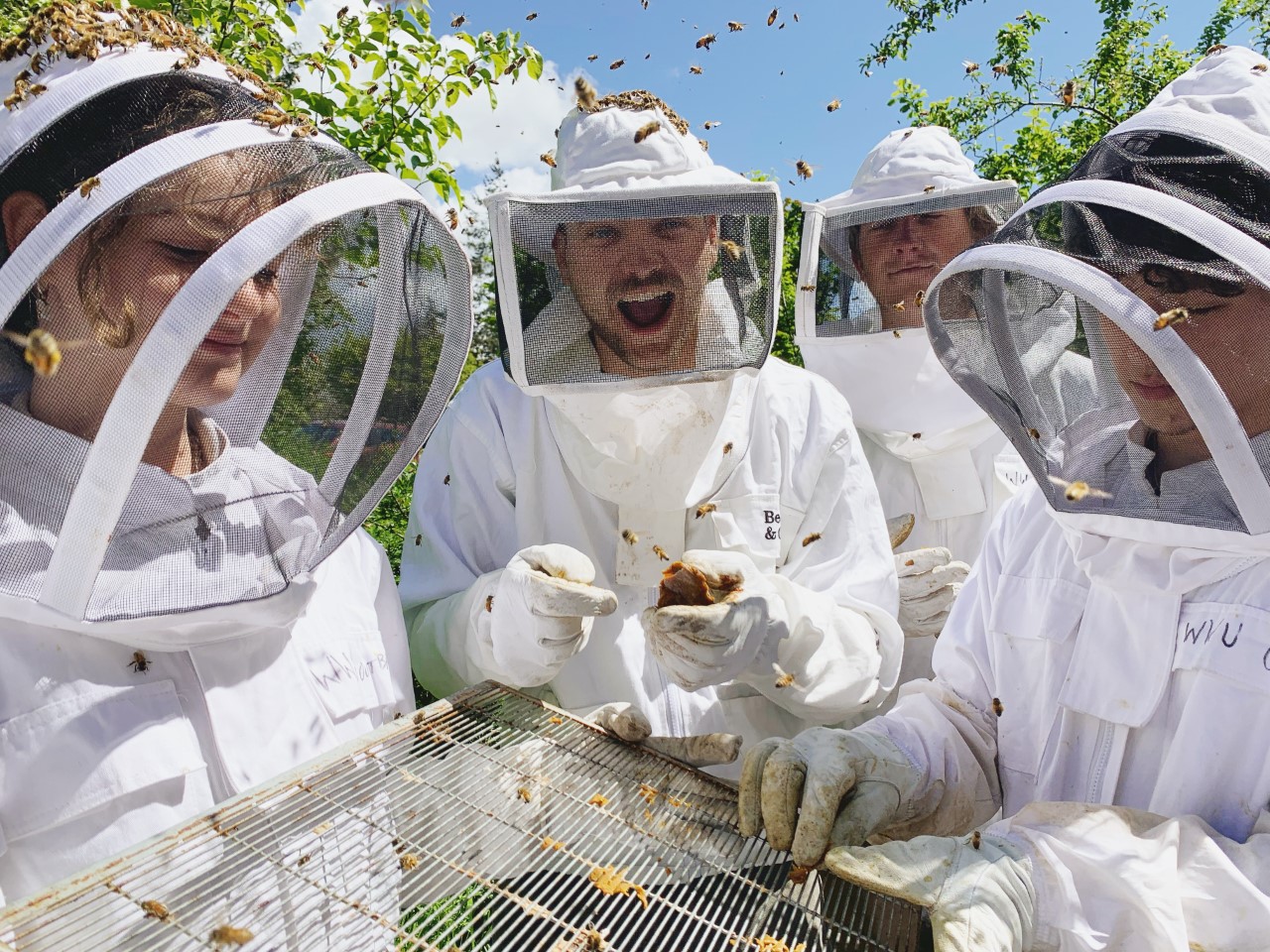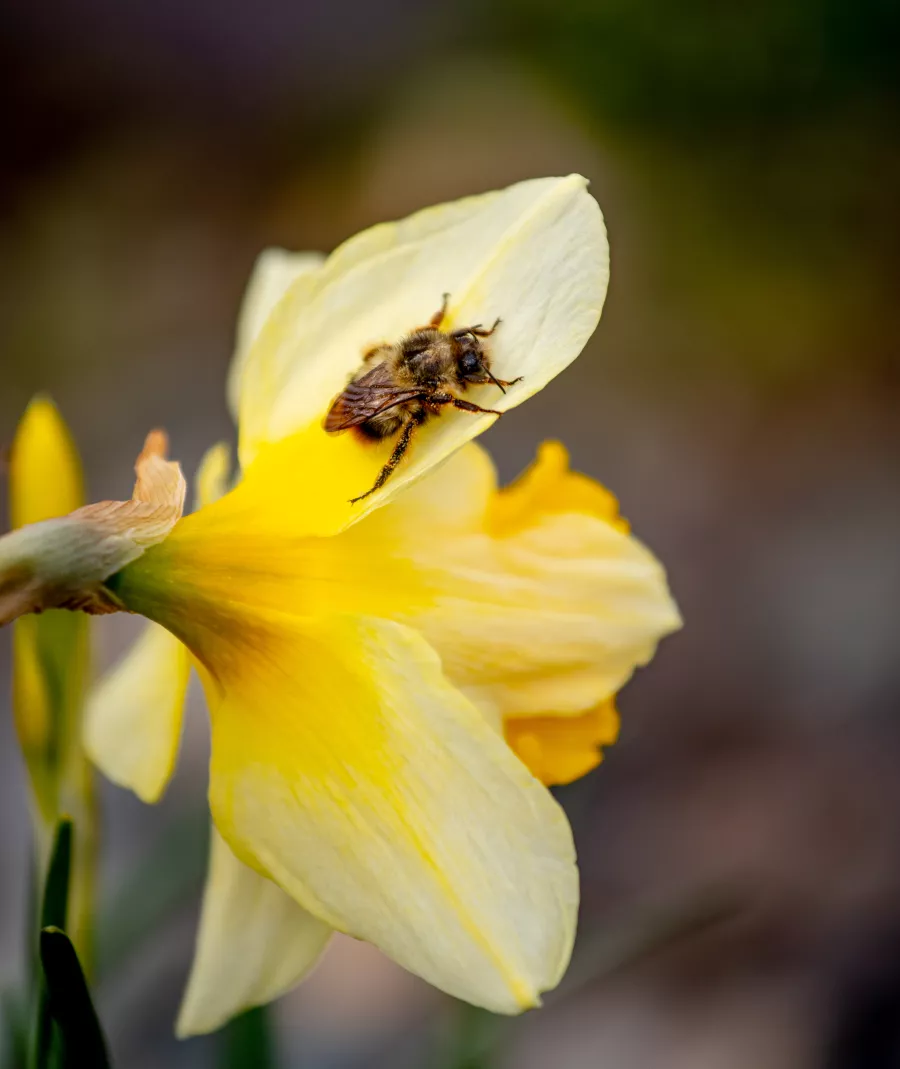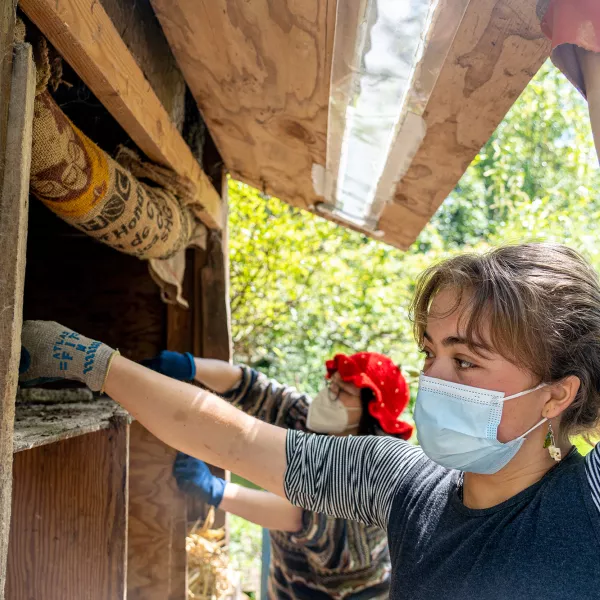Thanks to the Outback Farm, WWU grounds keepers and some bee-loving students, faculty and community members, Western was designated a Bee Campus this summer by the Xerxes Society, an organization devoted to conserving pollinators around the globe.
About one-third of what we eat comes from plants pollinated by insects like bees, yet bees are in jeopardy from habitat loss, pesticide use and other threats. Our fates are entwined—losing honeybees could jeopardize our food supply, too.
The Outback Farm’s teaching apiary began in 2019 with support from community beekeepers Chris Harrington and Marisa Papetti. Today, the apiary is an important part of the Outback, with hives of honeybees nestled among the trees, shrubs and crops on the farm.
The Bee Campus certification effort was led by two students at Fairhaven College of Interdisciplinary Studies, Kristy Lee, ’20, and Sasha Mosier. As current leader of the bee team, Mosier is out every week for hive inspections, and will help teach Western’s first beekeeping class in spring 2023.
“I love the bees themselves,” Mosier says. “My favorite part is sharing the experience with other students who wouldn’t otherwise have the opportunity—watching the expression on their faces when they suit up and are surrounded by bees for the first time is priceless.”
To keep its certification as a friendly home for bees, Western must create and follow an integrated pest management plan, a habitat plan, and commit to ongoing outreach and education efforts to engage students in beekeeping and protecting pollinator species. Western’s Grounds Department is on board, says Lead Gardner Heidi Zeretzke, ’82, B.S., visual communication, who has already worked to eliminate the use of certain pesticides on campus, and plant more native species.
“Bees have a way of engaging everyone,” says Outback Farm Manager Terri Kempton, ’98, B.S., environmental science. “It’s one of our earliest and most important human-animal relationships, and we’re instinctively drawn to their hives and honey. I’m so proud of our students leading this initiative—and of our collaboration with Facilities Management and their knowledgeable, passionate crew of land stewards.”


